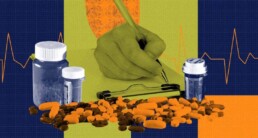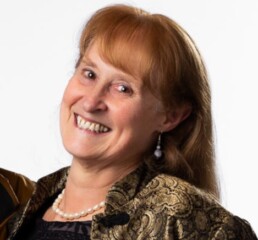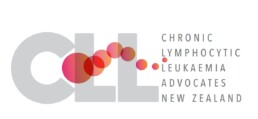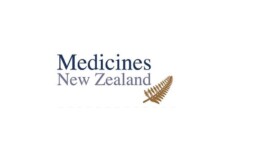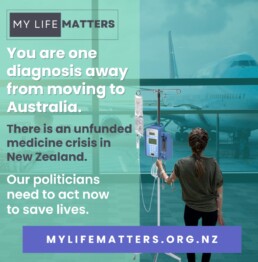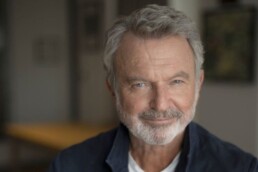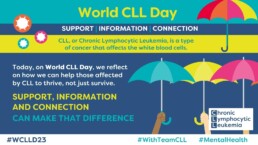Incidence of Non-Melanoma Skin Cancers in Patients with CLL: A Retrospective Study in Bay of Plenty New Zealand Population
CLLANZ provided some assistance for a research project to be done as a summer studentship, by then fifth year medical student, Andrew Weston, on “second primary malignancies in NZ CLL patients”.
Here is the link to the abstract published at the 63rd ASH (The American Society of Hemotology) Annual Meeting.
Second primary malignancies are important in CLL, where the impaired immune system is not as able to deal to developing malignancies as people with normal immune systems can. As a consequence, about one third of CLL patients die of a second primary malignancy, such as melanoma, colon cancer, and pancreatic cancer. Some of these cancers have well-recognised screening procedures to detect early stage cancers, which can have a better outcome to treatment then, compared to when they are picked up when symptoms develop.
Regular skin checks, and colonoscopy are two good examples of this screening approach.
NZ patients contribute to research for future treatment for leukaemia in global studies
At the American Society of Haematology (ASH) conference, significant research on chronic lymphocytic leukaemia (CLL) was unveiled, capturing the attention of New Zealand's haematologists and researchers. The studies focused on the extended monitoring of a chemo-free, fixed-duration, oral treatment approach for CLL patients, offering promising insights into a potentially groundbreaking first-line therapy. This research marks a pivotal advancement in understanding CLL treatment, highlighting the potential for more effective and manageable approaches in combating this form of leukaemia.
Please read more here: Media Release - Research for Future CLL Treatment
Coalition Agreement
| Yesterday coalition agreements between the National Party and New Zealand First and Act were formally signed. This three-party coalition promises to shape one of the most unique Cabinets under the MMP system, emphasising a cross-party approach to governance.
The Coalition Agreements, available by clicking here for National and NZ First and here for National and Act, outline the shared commitments and collaborative efforts that will define the upcoming Government.
Prime Minister and Deputy Prime Minister Christopher Luxon will be the Prime Minister. Winston Peters will be Deputy Prime Minister until May 31 2025. David Seymour will be Deputy Prime Minister from May 31 2025. Minister of Health, Associate Ministers of Health & Minister of Science and Innovation Dr Shane Reti - Minister of Health Casey Costello - Associate Minister of Health
Key Health Items from Coalition Agreements Between National and Act
Between National and New Zealand First
|
Calls to sack Pharmac boss after 'sick, sneering' remarks
Our CLL Advocates Media Release has made it to Stuff! Well done Ruth Spearing, CLL Trustee and passionate advocate.
Ruth Spearing, haematologist and trustee of Chronic Lymphocytic Leukaemia Advocates, has called on Health Minister Ayesha Verrall, State Services Commissioner Peter Hughes and Pharmac chairperson Steve Maharey to demand Fitt’s resignation.
Read more here: Calls-to-sack-pharmac-boss-after-sick-sneering-remarks
BLOOD CANCER GROUP CALL FOR PHARMAC BOSS TO RESIGN OVER ‘DISGRACEFUL’ AND ‘DEEPLY OFFENSIVE’ STATEMENTS
MEDIA RELEASE
BLOOD CANCER GROUP CALL FOR PHARMAC BOSS TO RESIGN OVER ‘DISGRACEFUL’ AND ‘DEEPLY OFFENSIVE’ STATEMENTS
Dr Ruth Spearing, haematologist and Trustee of Chronic Lymphocytic Leukaemia Advocates NZ, today called for the resignation of Pharmac CEO Sarah Fitt over revelations in internal emails released under the Official Information Act. The emails concerned journalist and outspoken critic of Pharmac, Rachel Smalley.
Dr Spearing said the emails revealed a sick, sneering culture inside Pharmac and a disgraceful attitude towards a person who has had the courage to speak out on behalf of patients who have been waiting years for Pharmac decisions on medicines.
“Sarah Fitt’s comments are not just unprofessional, they are deeply offensive, and demonstrate that she is entirely unfit to manage an organisation that has control over the lives and wellbeing of thousands of New Zealanders.
“It’s clear that Ms Fitt has created a crude, jokey clique among senior Pharmac staff, swapping childish, insulting remarks about Ms Smalley, even to the extent of composing a limerick about her.
“I call on Health Minister Ayesha Verrall, State Services Commissioner Peter Hughes and Pharmac Chair Steve Maharey to show that this behaviour by the leader of a government agency cannot be tolerated, and to demand her immediate resignation,” said Dr Spearing.
Rachel Smalley: Inside the minds of Pharmac’s leadership team - NZ Herald
For further information contact:
Dr Ruth Spearing CNZM, MBChB, FRACP, FRCPA
Trustee
Chronic Lymphocytic Leukaemia Advocates NZ
027 512 6356
Ruth.spearing@gmail.com
About CLL Advocates NZ – CLL Advocates NZ
About Dr Ruth Spearing
Dr Ruth Spearing CNZM, MBChB, FRACP, FRCPA has been involved with haematology since 1980 and has been a leader nationally in haematology trials. She was the NZ Principal Investigator for many of the UK Medical Research Council/National Cancer Research Institute trials which New Zealand took part in from the late 1980s until two years ago. These included the first ever trial to show that treatment of CLL could lead to prolongation of life and not just control of the disease.
Ruth’s many leadership roles included being the Canterbury Clinical Lead for the Adolescent and Young Adult Cancer Service, a Board Member of the New Zealand Medical Association, and an elected member of the Canterbury DHB Clinical Board. She was Chair of the Canterbury Hospitals’ Medical Staff Association for 14 years and was on the Board of the New Zealand Medical Association. She retired from direct patient care for family reasons but remains active in the Australasian Leukaemia and Lymphoma Group of which she is a Life Member and has recently joined its CLL Working Party.
A patient with CLL set up https://www.ruthspearingtrust.com/about_us a Trust in Ruth’s name for research in the South Island which helped fund the setting up of the Haematology Trials Unit in Dunedin and some specific CLL research done by the Christchurch Haematology Research Group, amongst other projects.
IQVIA report: Access to Medicines 4 (AtoM 4)
This report investigated and compared the funding and availability of modern medicines in the public health systems within New Zealand and Australia during the period January 2011- June 2023.
The AtoM 4 report highlights that the substantial difference between Australia and New Zealand in the availability of publicly funded modern medicines found in the first, second and third AtoM reports continues despite both countries having extremely similar decision-making and procurement systems for the public funding of modern medicines.
Key messages from the AtoM 4 Report include:
- Australia publicly funded 2.5 times more modern medicines than New Zealand between January 2011 - June 2023 (187 vs 69).
- Even for the same medicines, Australia was almost twice as fast to fund them. It took over 2 years in New Zealand (491 days vs 772 days)
- The registration and availability of modern medicines in New Zealand lags well behind Australia. 70% of the 131 medicines publicly funded in Australia, aren’t even registered in New Zealand.
Since publication of the last AtoM report, the gap between Australia and New Zealand has widened regarding publicly-funded modern medicines access.
To read the report, please view it here: Access_to_Medicines_Report_September_2023
MyLifeMatters campaign: find an event near you
MyLifeMatters is a collective of patient advocate organisations representing more than 1 million patients with cancers, rare disorders, diabetes, and other life limiting conditions calling for the New Zealand Government to tackle the issue of investment and timely access to new and breakthrough medicines for the people of New Zealand.
At the heart of this campaign lies a shared vision: a New Zealand where every Kiwi patient has the opportunity to lead a healthy life, unhindered by poor investment, and access to life-saving medicines that are available in other countries.
Through awareness, your advocacy, and courage, we aim to shape a brighter tomorrow for patients in Aotearoa.
Please find out how to take action here: My Life Matters Event Dates
Sir Sam Neil joins the growing call for access to standard blood cancer treatments
It is so important that New Zealanders are able to access new, emerging and effective cancer treatments that are the standard of care in other parts of the world.” - Sir Sam Neill, actor, New Zealander, and stage 3 blood cancer patient, June 2023
For a high-income, developed country, New Zealand has a particularly poor system of evaluating and funding medicines. This system often leaves New Zealanders without access to new medicines and vaccines that are often the standard of care in other developed countries.
Please read the article here: Land of the long wait crowd. Problems in New Zealand's Medicine Funding System
Rodger Tiedemann: The cancer treatments you need are available, just not in NZ
By Rodger Tiedemann
5 Sep, 2023 05:00 AM
OPINION
It is distressing to have to tell my cancer patients, in each and every clinic, that effective treatments exist that could significantly extend their lives, but that sadly these treatments are not available in New Zealand.
We are not speaking of the latest cutting-edge medicines. Far from it. Instead, even routine cancer treatments that have been funded for years in other countries, and that are considered to be the standard of care across the Western world, are often left unfunded in New Zealand and are thus denied to Kiwis with cancer.
Regrettably, “strangled” access to modern medicines has become a pervasive characteristic of New Zealand’s healthcare, and has created a disturbing gulf between Aotearoa and other Western nations in the delivery of cancer care. It affects thousands of Kiwis each year.
Perhaps you don’t believe it’s that bad? From 2011 - 2020, New Zealand funded only one-third of the new medicines that were funded by Australia (51 versus 143; Access to Medicines Report, 2021). Even worse, during the same period, New Zealand funded only 10 per cent of the new cancer medicines launched in the OECD. Unsurprisingly, Te Aho o Te Kahu - the Cancer Control Agency of New Zealand - has identified 20 gaps in national cancer care, where cancer medicines are publicly funded in Australia but not in New Zealand.
Even medicines eventually funded in New Zealand typically face years of delay. In 2013, Kiwi patients waited roughly as long as Australians for medicines reimbursement (402 vs. 398 days respectively). By 2020, the wait time in New Zealand had risen to 1014 days, compared to 422 in Australia. Incredibly, our wait times continue to grow, and New Zealanders in 2023 now wait 7.7 years on average (median 6.5) for a new medicine to become publicly funded.
In my specialty of multiple myeloma, three drugs - carfilzomib, pomalidomide and daratumumab - remain unfunded in New Zealand, despite being widely available in other Western countries. Consequently, Kiwis living with multiple myeloma in 2023 are not benefitting at all from the considerable global progress that has been made over the past decade in treating this cancer and are still being offered a level of care limited to that provided circa 2014 in Canada or the UK.
As an example, daratumumab is a monoclonal antibody that revolutionised the treatment of myeloma when it was introduced a decade ago. It received accelerated approval in the US in 2015. Two randomized studies demonstrated that it reduced the risk of myeloma disease or death by an impressive 60 per cent. It has since been funded in 49 countries. But not in New Zealand. For cancer patients, treatment delayed is treatment denied. Pharmac’s half-decade-long deliberation on daratumumab is indefensible. Patients die waiting for it. Indeed, Pharmac’s quiet foot-dragging approach to bringing new cancer medicines to our shores is difficult to reconcile with the way the Government values life. It is depriving Kiwis of years of lifespan, and it is denying our communities their contributions.
Can we afford modern cancer treatments? New Zealand is not a poor country. We rank 33rd in GDP per person (in US$) from 262 countries and economies. That places us between Germany and the UK, and ahead of France, Italy, Japan and Spain. However, whereas those countries respectively reimbursed 173, 164, 125, 119, 153 or 108 new medicines between 2015-2020, New Zealand reimbursed only 20 (Medicines Australia, 2022). So why doesn’t New Zealand fund modern medicines?
New Zealand’s total health expenditure per person per year - US$6061 ($10,202) - is not miserly, and falls between the UK and Germany, and behind France. As a percentage of GDP it even appears generous. In contrast, however, New Zealand’s spending on medicines – the Combined Pharmaceutical Budget - is incomprehensibly tight-fisted at only 0.38 per cent GDP. That is less than a third of the average OECD national expenditure on medicines of 1.41 per cent GDP. That stingy 28 per cent expenditure, compared to the average of comparable countries, directly explains the lower availability of publicly-funded medicines in New Zealand. This anomalous bottleneck in medicines spending is strangling medical care in our country. Modern care requires modern medicines.
Fortunately, the problem can be solved. Pharmaceutical spending accounts for only 4 per cent of the health budget; therefore significant improvements in medicines access can be achieved without outsized changes in total health expenditure. A fix is possible.
When Pharmac was created in 1993 it realised admirable savings by rationalising and negotiating pharmaceutical contracts at a national level. It was a source of pride. Due to underfunding, it has morphed, however, into an agency that now creates savings by denying and delaying the introduction of effective new medicines. That’s not something of which to be proud. Government funding and Pharmac’s culture need to change.
Rather than touting savings made by denying Kiwis modern care, the Government and Pharmac should be proud to bring newer and better treatments to New Zealanders. They should prize expediency. Kiwis deserve this and we can achieve it.
Rodger Tiedemann is an Associate Professor at the University of Auckland; Antony and Margaret Morris Fellow in cancer research; consultant haematologist at Auckland Hospital.
Medicines Crisis Campaign events next week
Come and hear patient advocate Malcolm Mulholland speak about his personal journey with cancer, what cancers are prevalent in your community and what drugs you are missing out on, the stories of local patients who needed medicines, New Zealand’s medicine crisis and what can be done about it.
Venue: Globe Theatre, 312 Main Street, Palmerston North
When: Monday 4th September 7:00pm - 8:00pm. For more information, please click on this link to rsvp: Palmerston North Event
Next events:
Tuesday 5th September in Whanganui: Whanganui Event
Wednesday 6th September in New Plymouth: New Plymouth Event
Monday 11th September in Havelock North: Havelock North Event
For the full list of events please click here

